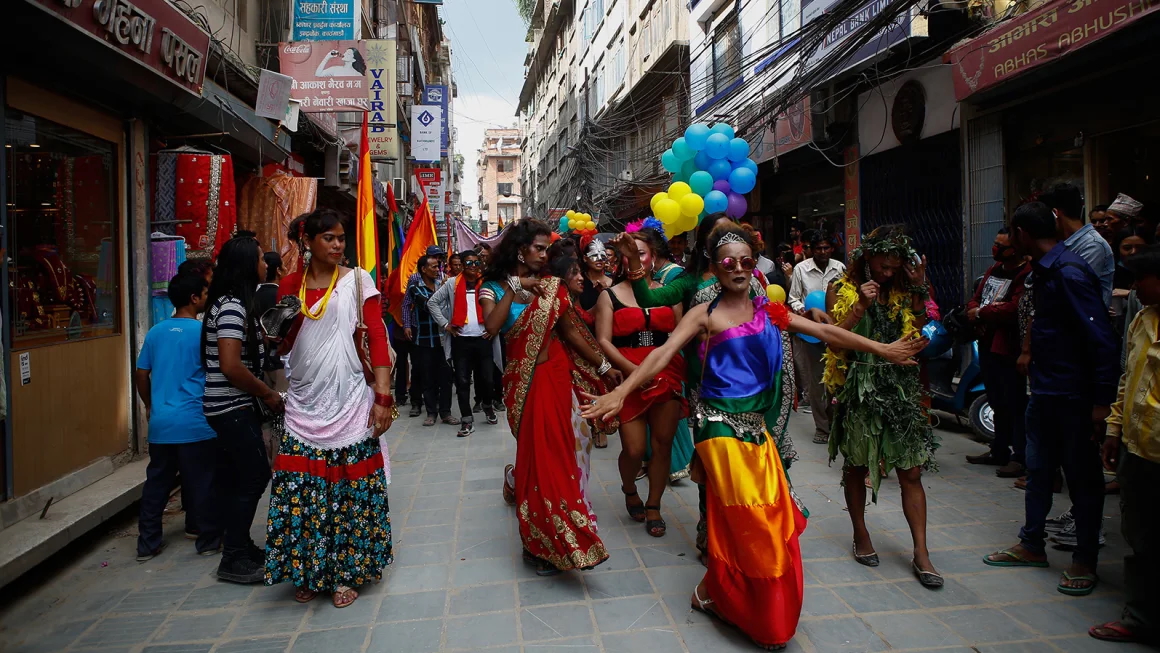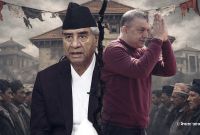SHUT DOWN! How Trump-Era Aid Cuts Just Crushed Nepal's LGBTQ+ Support System

The once-active Parichaya Samaj center, a haven for Nepal's LGBTQ+ community offering support and advocacy, now stands silent, its metal gates secured with padlocks. A notice bluntly informs visitors that assistance is no longer available, the absence of staff and volunteers underscoring the center's shuttering.
This closure is not an isolated incident. It represents a widespread crisis gripping Nepal's queer community, stemming directly from funding shortages linked to policy shifts under the former U.S. administration of President Donald Trump. The dismantling of programs within the U.S. Agency for International Development (USAID), previously a key provider of humanitarian and development assistance supporting LGBTQ+ initiatives, has reportedly choked off the financial lifeline for numerous support centers across Nepal, leaving thousands vulnerable and without critical resources.
This sudden loss of support marks an unprecedented setback for the Himalayan nation’s growing and increasingly visible queer community, which had celebrated significant legal and social progress in recent years.
“It is a big crisis," lamented Sunil Babu Pant, Nepal's first openly gay former parliamentarian and a leading LGBTQ+ rights campaigner. The impact, he explained, is profound and deeply personal. “When the community needs counselling or support, it is absent. People are going back to the closet again.”
The sense of crisis is particularly acute given the advancements Nepal had made. The nation gained international attention for taking progressive steps, including movement towards recognizing same-sex relationships after landmark court decisions, positioning itself as a relative haven in South Asia. Furthermore, the country's constitution, adopted in 2015, explicitly guarantees non-discrimination based on sexual orientation.
The United States, through agencies like USAID, had been a significant financial backer of these advancements and the community infrastructure supporting them. Over the years, USAID and other international partners collaborated with local help centers like Parichaya Samaj. This funding was crucial for initiatives vital to the health and well-being of the LGBTQ+ community, including HIV prevention programs, safe-sex counseling, access to care for those living with HIV, free condom distribution, screenings, and essential follow-up treatments. With much of that specific program funding now reportedly gone following the US policy shifts, the progress achieved is under direct threat. The USAID office in Nepal itself, which previously managed these grants, is now highlighted as part of the systemic change impacting these funds.
The consequences are already being felt, particularly in public health. Babu Dumi Rai, who lost his job when the Kathmandu help center he worked at closed, issued a stark warning about the potential rise in HIV infections. “In our community people are hesitant to buy condoms, and many of them are not even aware they need to use a condom or even how to properly use them,” Rai explained. “With all these projects and services shuttered, there is now a very big risk of the HIV infections to be on the rise.”
Dinesh Chaudhury, who has extensive experience working with the now-defunct centers, estimates that between 15,000 and 20,000 people living with HIV in Nepal belong to the LGBTQ+ community. He stressed that the centers were often the primary point for medical assistance, offering a safe and understanding environment. Now, individuals struggle to find viable alternatives. While government hospitals exist, members of the community report feeling judged or mistreated.
“It is uncertain where they can go to get help in the coming days,” Chaudhury said, reflecting the widespread confusion and fear. “I have so many people come with questions on where they can go, but I have no answer.”
The situation is particularly precarious for marginalized groups within the community, such as transgender sex workers. Simple Lama, who identifies as such, described the increased difficulty in accessing basic necessities like condoms and lubricants, as well as non-discriminatory medical care.
“It was easier and safer to go to the centers and clinics to get medical help and consultations,” Lama stated. “But now it is difficult to go to big hospitals, and when we go to the regular hospitals, people look at us differently, treat us differently.”
While sex work is illegal in Nepal, transgender sex workers had previously experienced a degree of tolerance, partly due to sustained advocacy by LGBTQ+ groups against police harassment. However, the economic fallout from the center closures is creating a devastating new pressure.
Sunil Babu Pant revealed a grim consequence: individuals who previously worked at the support centers, now unemployed and desperate, are turning to sex work to survive. “Quite a few of them have started doing sex works,” Pant said. “Because of the scarcity of jobs and opportunities, a lot of trans and third genders are surviving as sex workers.”
The closure of these centers represents more than just the loss of services; it signifies the disappearance of safe spaces, vital health interventions, and crucial employment for a community that had only recently begun to secure hard-won rights and visibility. The abrupt withdrawal of funding risks not only a public health crisis but also the unraveling of years of progress for LGBTQ+ rights in Nepal.




![From Kathmandu to the World: How Excel Students Are Winning Big [Admission Open]](https://nepalaaja.com/img/70194/medium/excel-college-info-eng-nep-2342.jpg)
